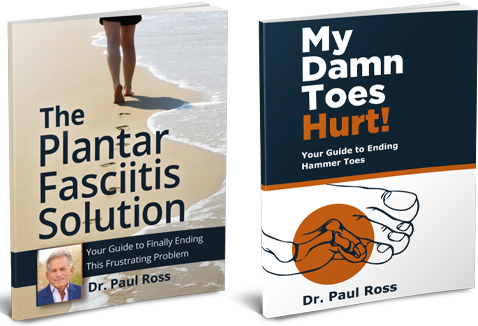
If you have developed bony bumps on the joints of your feet, you may be suffering from bunions. Bunions are deformities that form on the big toe joint or pinky toe joint. They are frequently caused by the pressure exerted by the big toe onto the adjacent toe, causing it to enlarge and become sore and painful. These deformities require treatment, ranging from at-home care to visiting our podiatrist. Our Bethesda foot doctor provides information regarding bunion treatment and prevention.
Symptoms of Bunions
The most obvious sign of a bunion is a deformity; a bump on the joint of your toe. The bump is generally painful and may be warm to the touch if it is irritated. Some patients also experience:
- Stiffness of the toes
- Difficulty moving your toes
- Restricted movement and swelling of the toe
- Calluses or corns
Causes of Bunions
A common cause of a bunion forming is shoes that are too narrow for your foot. Narrow shoes cause the outside of your feet to rub against the inside of the shoe, irritating the outer joints and causing inflammation. Additionally, the pressure can cause the toes to overlap, causing further irritation to other joints.
However, a major root of bunion recurrence is the physical structure of your foot and other foot conditions you may have, such as arthritis. Foot structure or structural defects are genetically determined, and you may have other family members that suffer from recurring bunions. While this is outside of your control, there are steps you can take to reduce your risk of developing bunions.
Treatments and Aftercare
The first step in treating and preventing bunions is to get well-fitting shoes with a wide toe box for maximum room. This will reduce friction and irritation caused by narrow shoes. As the bunion heals, use bunion cushions to relieve pressure and protect the joint.
If your bunion becomes worse, it’s critical that you contact our podiatrist, as foot surgery may be necessary to remove the affected tissue. If caught early, this should be avoidable.
If you’ve suffered from bunions before, it’s important to reduce risk of recurrence and contact our podiatrist for ongoing care.
Contact Our Bethesda Foot Doctor Today To Learn More!
The information provided in this article is not meant to be medical advice and is for educational purposes only. If you would like to learn more about this and other topics related to podiatry, feel free to contact The Podiatry Center, with convenient podiatry offices located near Bethesda by calling 301.660.8225 or by clicking here.

